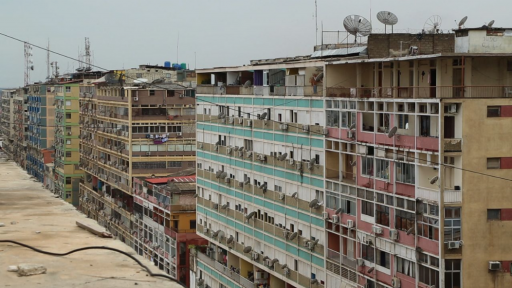Kiluanji Kia Henda
Kiluanji Kia Henda, was born in Angola in 1979. He currently lives and works in Luanda. Kia Henda’s interest in visual arts stems from growing up in a household of photography enthusiasts. A link to music and Vanguard theater were part of his conceptual training, as was a collaboration with a collective of artists in Luanda. Kiluanji participated in various residency programs in cities like Venice, Cape Town, Paris, Amman and Sharjah, among others. He also participated in the following selection of expositions: 1st Luanda Triennial, 2007; Check List Luanda Pop, African Pavillion, Venice Biennale, 2007; Farewell to Post-Colonialism, Guangzhou Triennial, 2008; There is always a cup of sea to sail in, 29th São Paulo Biennial, 2010; Tomorrow Was Already Here, Tamayo Museum, Mexico City, 2012; Les Prairies – Les Ateliers of Rennes, 2012; Mondays Begins On Saturday,1st Bergen Triennial, 2013; The Shadows Took Form, The Studio Museum of Harlem, New York City,2013; Producing the Common, Dakar Biennale, 2014; The Divine Comedy, Museum für ModerneKunst, Frankfurt and The Smithsonian Institute, Washington, D.C. 2014; Surround the Audience, New Museum Triennial, New York City, 2015; Museum (Science) Fictions – MUSEUM ON/OFF, Centre Georges Pompidou, Paris, 2016; Fucking Globo II, Hotel Globo, Luanda, 2016 (participated also as a co-curator). In 2012, Kia Henda won the National Culture and Arts Award given by the Angolan Ministry of Culture, and in 2014, he was selected among the 100 Leading Global Thinkers by Foreign Politics magazine.

Concrete Affection (Zopo Lady) | Angola 2014 | Video | 12 min 30s
Inspired by Polish journalist and writer Rychard Kapuscinsky’s book , “Another Day of Life – Angola 1975”, Concrete Affection – Zopo Lady is a portrait of the Angolan capital Luanda, using as a reference the historical period when the city was completely abandoned by the thousands of inhabitants (mainly Portuguese and white Angolans), as a consequence of Angola independence in 1975, followed by a long-term civil war. The narrator tells of the painful decision to leave the city where he lived his whole life. But the impossibility of affections for a woman torments him and undermines his plans to escape. Concrete Affection is an intimate and personal perspective on the relation between space and collective memory confronted by the vital and mandatory need to emigrate.